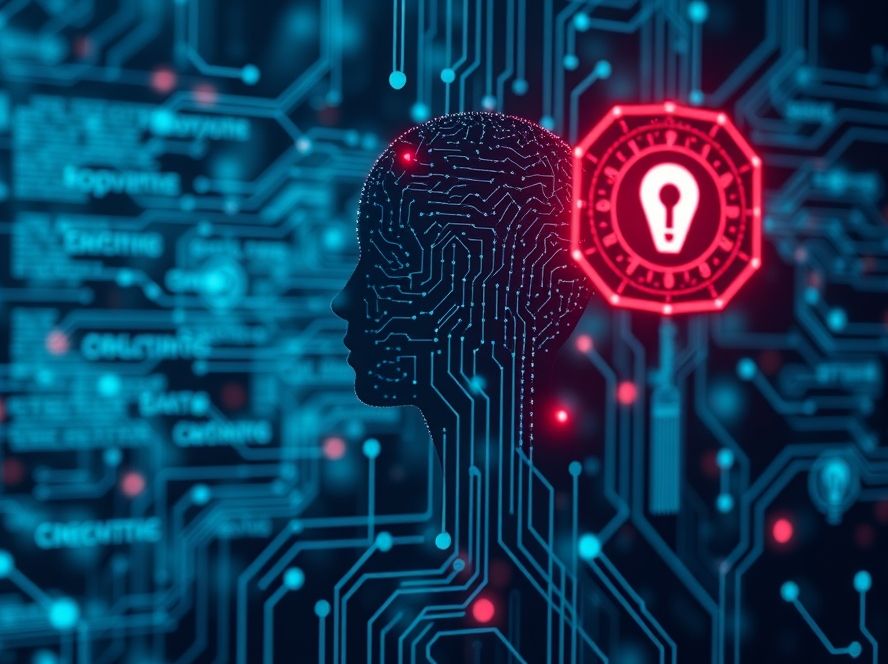Artificial Intelligence Security: A Comprehensive Glossary
Artificial Intelligence Security refers to the measures and protocols implemented to protect systems and data from threats that specifically target AI technologies. As AI continues to permeate various sectors, understanding its security implications becomes vital for professionals, students, and beginners in cybersecurity.
The Importance of Artificial Intelligence Security
In today’s digital landscape, Artificial Intelligence (AI) is not just a technological innovation; it’s a transformative force in how businesses operate. However, with great power comes great responsibility. The integration of AI into systems raises significant security concerns, making Artificial Intelligence Security a critical field. Cybercriminals are increasingly exploiting AI applications to enhance their attacks, necessitating robust security frameworks to safeguard sensitive information.
Understanding the Core Aspects of Artificial Intelligence Security
Artificial Intelligence Security encompasses several core aspects, including:
- Data Protection: Safeguarding the data that trains AI models is paramount. Breaches can lead to biased outcomes and misuse.
- Model Integrity: Ensuring that AI models remain uncorrupted and function as intended is crucial for reliable outputs.
- Access Control: Implementing strict access controls helps prevent unauthorized manipulation of AI systems.
- Regular Updates: Keeping AI systems updated protects them against emerging threats.
Practical Applications of Artificial Intelligence Security
Understanding how to implement Artificial Intelligence Security in real-world scenarios is essential. Here are some practical applications:
1. Cyber Threat Detection
AI can analyze vast amounts of network data to identify unusual patterns indicative of a cyber attack. For instance, machine learning algorithms can detect anomalies in user behavior and flag potential breaches before they escalate.
2. Automated Incident Response
AI systems can automate responses to security incidents, reducing reaction times. For example, an AI system could isolate affected portions of a network when a threat is detected, minimizing damage.
3. Enhanced Authentication Methods
AI can improve authentication processes through biometric recognition. Systems that utilize facial recognition or fingerprint scanning are examples of AI enhancing security measures.
4. Predictive Analytics
By analyzing historical data, AI can predict potential security breaches, allowing organizations to strengthen their defenses proactively.
Challenges in Artificial Intelligence Security
Despite its advantages, Artificial Intelligence Security faces several challenges, including:
- Adversarial Attacks: Cyber attackers can manipulate AI models to produce incorrect outputs.
- Data Privacy Concerns: The use of personal data for training AI raises ethical and legal issues.
- Complexity of AI Systems: The intricate nature of AI can make it difficult to identify and mitigate vulnerabilities.
How to Implement Artificial Intelligence Security in Your Organization
For professionals looking to integrate Artificial Intelligence Security into their organizations, consider the following steps:
- Conduct a Risk Assessment: Identify potential vulnerabilities in your AI systems.
- Establish Security Protocols: Develop and enforce protocols for data handling and model training.
- Invest in Training: Equip your team with the knowledge to recognize and respond to AI-specific security threats.
- Utilize Security Tools: Implement specialized tools designed to protect AI systems.
Related Concepts in Artificial Intelligence Security
Understanding Artificial Intelligence Security also involves knowledge of related concepts:
- Machine Learning Security: Focuses on securing machine learning models against various threats.
- Data Security: Encompasses measures to protect data integrity and confidentiality.
- Cybersecurity Frameworks: Guidelines and standards that help organizations protect their digital assets.
Conclusion: Embracing Artificial Intelligence Security
As AI technologies evolve, so too must our approaches to security. Understanding Artificial Intelligence Security is not just advantageous; it is essential for safeguarding sensitive information and maintaining trust in AI applications. By implementing robust security measures, organizations can harness the power of AI while mitigating risks effectively.
Call to Action
Reflect on how your organization approaches security. Are there gaps in your knowledge regarding Artificial Intelligence Security? Take the initiative to learn and apply best practices to protect your systems and data.









